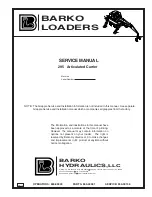
5
Rare (less than 1%)
Bradycardia (slow heart rate)
Cardiac tamponade (build up of fluid around the heart that can
be life-threatening)
Myocardial infarction (heart attack)
Mini stroke (TIA), or stroke
Death
In addition, if you have a thin heart wall, you may experience a
hiccup each time the device delivers a CCM signal due to the
stimulation of the phrenic nerve or of the diaphragm itself. This
may require surgical correction.
You may also be sensitive to one or more of the materials used in
your OPTIMIZER Smart Mini IPG that are exposed to the tissues
of the body (histotoxic reaction). Though rare, this may require the
removal of the device. The materials that are in Contact with
Human Tissue are Titanium, Epoxy resin, and Silicone rubber.
The OPTIMIZER Smart Mini IPG uses its leads to detect the
electrical activity of your heart. Complications that can affect the
lead’s ability to perform this function may occur. These include:
A lead may become dislodged from where it was placed
during implantation, necessitating re-operation.
A lead may fracture or break producing a poor electrical
connection, necessitating re-operation.
The lead problems described above can occur at any time during
the implant life of a lead. Surgical correction is typically required.
3.2
Complications Associated with Device /
Charger Operation
Complications associated with device/charger operation include,
but are not limited to:
An OPTIMIZER Smart Mini IPG may not properly sense
and deliver CCM signals due to a software or hardware
problem, necessitating replacement.
An OPTIMIZER Smart Mini IPG may detect environmental
interference and inappropriately deliver CCM therapy.
See Section 5.4.












































